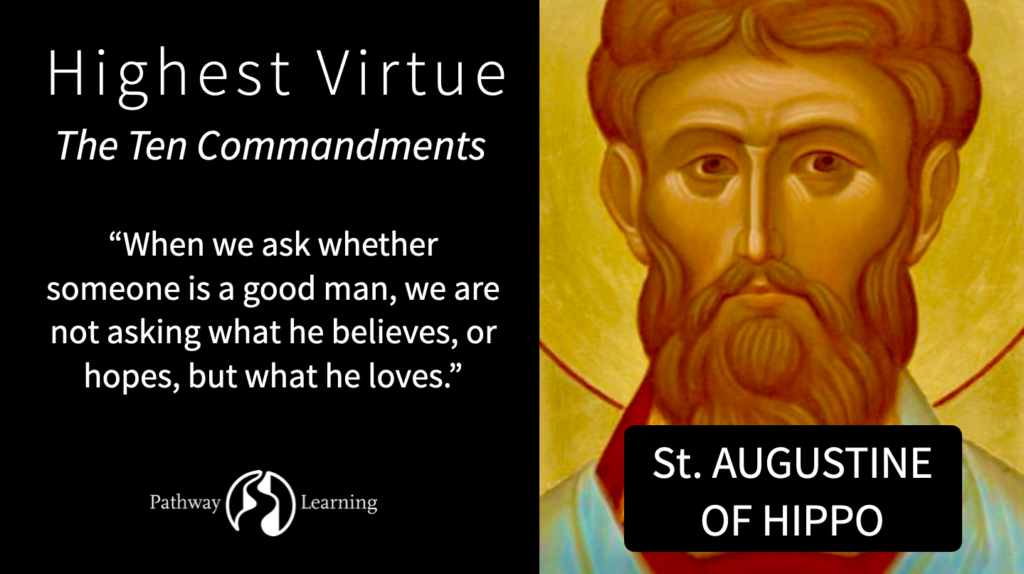Our Love - The Ten Commandments Part 1: Applications in Theology, Lesson 4
By John Frame and Steve Childers
Having seen how our faith should be rooted in the biblical truths of the Apostles’ creed, and our hope should be stirred up by the Lord’s prayer, we’ll look now at how our love for God and others should be a demonstration of God’s will for us revealed in the Ten Commandments.
In studying the Ten Commandments, we’re following the example of Augustine’s summary of biblical Christianity in his Handbook on Faith, Hope, and Love, in which he writes, “Thus, from our confession of faith, briefly summarized in the Creed, there is born the good hope of the faithful, accompanied by a holy love.”
The Apostle Paul teaches that love is greater than faith and hope. “So now faith, hope, and love abide, these three; but the greatest of these is love.” (1 Cor 13:13) Augustine reflects this when he writes, “For when we ask whether someone is a good man, we are not asking what he believes, or hopes, but what he loves.”
The good news is that God graciously gives us the Ten Commandments as part of his cosmic redemption and restoration project to reorder our loves for him and others so we will flourish according to his original design.
Lesson Goals
In this lesson, you'll be equipped to:
Explain why and how love is superior to faith and hope
Describe how love summarizes the Ten Commandments
Apprehend God’s deeper intention in the Ten Commandments
Realize the perfect requirements of the Ten Commandments
Discover how the Ten Commandments expose disordered loves
Demonstrate how the Ten Commandments reorder our loves
Choose Your Learning Pathway
We help underserved church leaders develop churches that transform lives and communities


